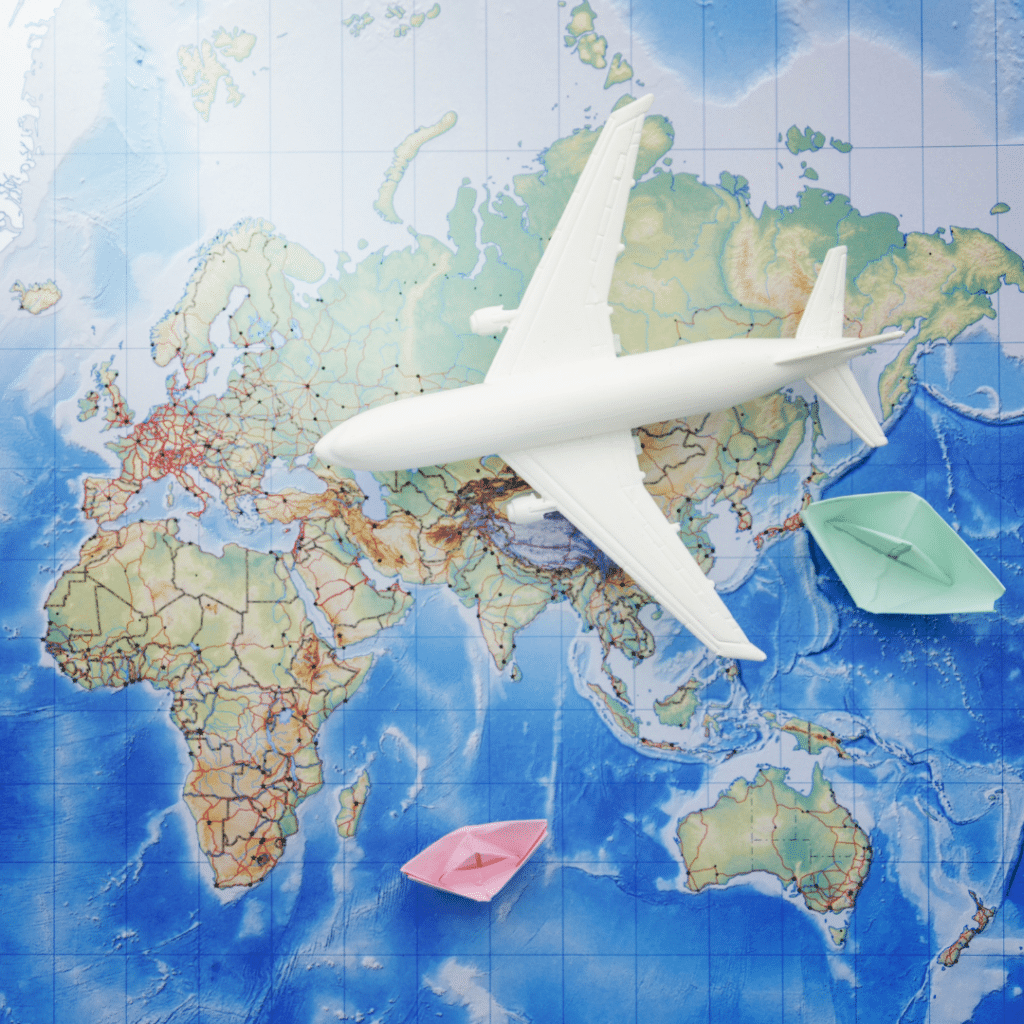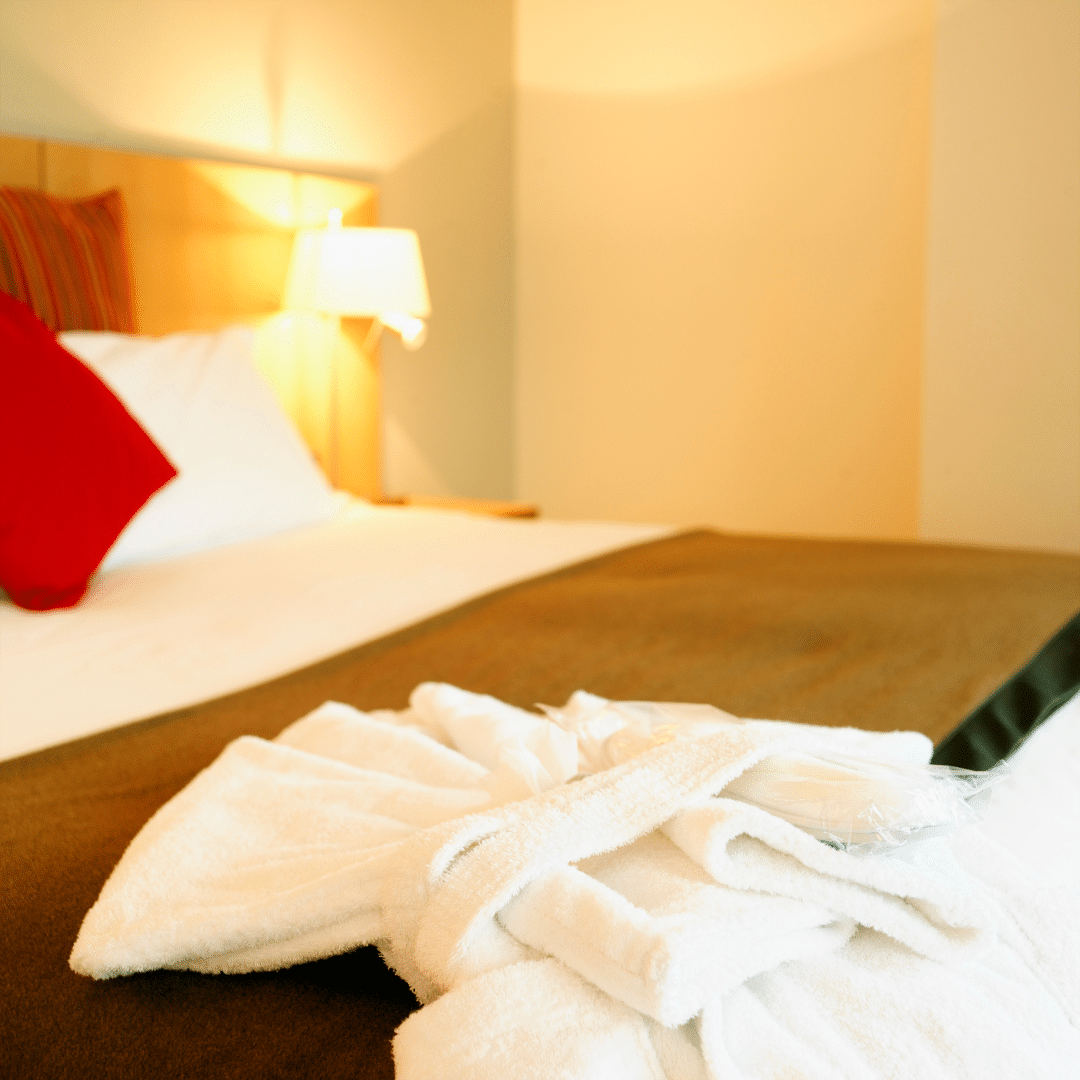Lots of us love to travel to exotic destinations on holiday. But how many of us have been floored on arrival at a fabulous holiday destination by jet lag? As someone who loves to get straight out exploring as soon as I arrive in a new destination, jet lag can be so frustrating. But don’t despair. Psychology can save the day! Over the years I’ve been travelling I’ve learned ways that psychology can help us to beat the dreaded jet lag.
Isn’t Jet Lag Just Travel Fatigue?
Nope! Jet lag happens when we arrive in a new destination with a time zone that is out of sync with our body clocks. This misalignment happens when we zip across time zones too fast for our bodies to adjust naturally, leaving our internal drive for sleep and wakefulness desynchronised from those of the new destination.
Many of us will be familiar with the main symptoms of jet lag, including difficulties getting to sleep and staying asleep, or waking up unsociably early. For instance, on my recent trip back to the UK from Singapore I woke at 5am for the first three days I was back. In the UK winter, that’s three hours before it even gets light.
Beyond sleep disruption, jet lag can cause various symptoms such as:
- Daytime tiredness and fatigue
- Poor performance on mental and physical tasks
- Mood swings and irritability
- Headaches
- Poor concentration
- Loss of appetite
- Indigestion
You might also experience these symptoms from travel fatigue, which results from the physical demands of travel, such as disrupted sleep, dehydration, and the stresses of flying. However, the key difference is that travel fatigue isn’t linked to crossing time zones and usually goes away after a good rest. In contrast, jet lag persists until your body clock adjusts to the new local time.
The Role of Psychology in Managing Jet Lag
While the physical symptoms of jet lag are well-known the psychological factors are often overlooked. Research shows that people’s subjective perceptions of jet lag often don’t align with the actual severity of symptoms.There is a lot of variation in how negatively individuals perceive the impact of their jet lag symptoms. There is also evidence to suggest that people’s perceptions of their own jet lag can be more dependent on previous experiences of jet lag, and advice received from figures of authority, than on what they are actually physically experiencing.
This discrepancy can be explained by the psychological concept of illness cognitions—our beliefs and expectations about our health and susceptibility to illness. When applied to jet lag, pessimistic illness cognitions lead us to view jet lag as more severe and uncontrollable, discouraging us from taking proactive steps to manage it. However, understanding that jet lag can be minimized with the right strategies can help us feel more in control, encouraging us to implement effective countermeasures.
So, what does this mean for beating jet lag? Simply being aware of your own illness cognitions and learning evidence-based strategies for managing jet lag can increase your likelihood of using these strategies and reduce your negative experiences.
Top Strategies for Minimising Jet Lag
Unfortunately, the only foolproof way to avoid jet lag is to avoid traveling across time zones altogether. But if you’ve got an exciting trip planned, the next best thing is to use multiple approaches to help your body adjust to your new time zone. Here are some effective strategies to help synchronise your body clock with your destination’s time zone and manage the symptoms of jet lag:
- Sleep Scheduling: Start adjusting your sleep schedule a few days before you travel by shifting your bedtime closer to your destination’s local time. Upon arrival, try to sleep according to the local time zone. Avoid napping or sleeping on the plane if it doesn’t align with your destination’s nighttime, as this can slow down your adjustment.
- Choose Your Flights Wisely: If possible, try to catch flights that arrive in the afternoon or evening in your new time zone. This will allow you to go to bed not long after arrival, when you’re probably experiencing travel fatigue. This will maximise your chances of good sleep on that first night.
- Light Exposure: Light is a powerful tool in regulating your sleep-wake cycle. After traveling east, seek out morning sunlight to help your body clock adjust earlier. After traveling west, look for evening sunlight to delay your body clock. Even in destinations with limited daylight, exposure to natural or indoor lighting can help. Be mindful that if you’re crossing more than eight time zones, your body might misinterpret light exposure, so plan accordingly.
- Physical Activity: Physical activity can help minimise jet lag because of its sleep promoting effects, and because it can also promote wakefulness during the times you need to be more alert. Exercise outdoors if possible to benefit from both the physical activity and natural light exposure. The key with this strategy is timing. Avoid over-exerting when you’re struggling with travel fatigue, and don’t exercise too close to bedtime, when you need to be inducing feelings of sleepiness.
- Meal Timings: It’s when we eat, not what we eat that counts. Align your meals with the local time of your destination as soon as possible. While there is some evidence suggesting that eating more protein in the morning and carbohydrates in the evening can help, the timing of your meals is likely more important for adjusting your body clock. The hunger inducing hormone leptin is closely linked to sleep and circadian rhythms, so getting into a food routine can really help.
When to Use These Strategies
This can seem like a lot of effort to go to if your trip is a short one. And in fact the advice is clear – for trips shorter than three days it’s probably not worth the hassle. Realigning your circadian rhythm takes longer than this, so your best approach is to minimise the effects using short-term strategies like napping cleverly, and using caffeine and exercise to promote wakefulness at the times you want to be awake. The jet lag strategies above are best used for trips longer than three days.
It’s also important to remember that everyone’s experience with jet lag is different. For all of the strategies described above, there’s a great deal of variation between individuals in the rate of adaptation. Factors such as age, experience with long-haul travel, and whether you are a morning person or a night owl (your chronotype) can affect how quickly you adjust. The best way to manage jet lag is to learn what works best for you through experience.
Perhaps just by reading this article your illness cognitions have already shifted, leaving you more optimistic about future jet lag! However, to really maximise your chances of beating jet lag, use as many of these strategies as possible.





